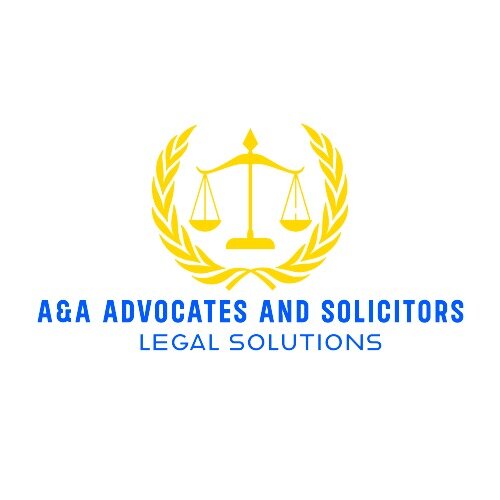Best Telecommunications and Broadcast Lawyers in Ghana
Share your needs with us, get contacted by law firms.
Free. Takes 2 min.
Or refine your search by selecting a city:
List of the best lawyers in Ghana
About Telecommunications and Broadcast Law in Ghana
Telecommunications and Broadcast play a crucial role in Ghana, with laws and regulations governing these sectors to ensure fair competition, consumer protection, and national security.
Why You May Need a Lawyer
You may need a lawyer in Telecommunications and Broadcast in Ghana if you are facing issues related to licensing, compliance, disputes, contracts, mergers and acquisitions, or any other legal matters within these sectors.
Local Laws Overview
Key aspects of Ghanaian laws relevant to Telecommunications and Broadcast include the National Communications Authority Act, Electronic Communications Act, and Broadcasting Act. These laws cover licensing, regulatory requirements, spectrum management, content regulation, and more.
Frequently Asked Questions
Q: How can I obtain a telecommunications or broadcasting license in Ghana?
A: To obtain a license, you must apply to the National Communications Authority and meet the specified criteria for the desired license type.
Q: What are the main compliance requirements for telecommunications and broadcasting companies in Ghana?
A: Compliance requirements include fulfilling licensing conditions, adhering to quality of service standards, ensuring network security, and complying with content regulations.
Q: What are the penalties for non-compliance with telecommunications and broadcasting laws in Ghana?
A: Penalties for non-compliance can include fines, license revocation, and other regulatory sanctions.
Q: How can a lawyer help me resolve a dispute with another telecommunications or broadcasting company?
A: A lawyer can provide legal advice, negotiate on your behalf, represent you in dispute resolution mechanisms, and assist in litigation if necessary.
Q: Are foreign telecommunications and broadcasting companies allowed to operate in Ghana?
A: Yes, foreign companies can operate in Ghana but must comply with local regulations, including obtaining the necessary licenses.
Q: What are the main consumer rights in telecommunications and broadcasting in Ghana?
A: Consumer rights include access to affordable services, protection of personal data, clear information on service offerings, and avenues for complaint resolution.
Q: Can telecommunications and broadcasting companies in Ghana merge or be acquired by other companies?
A: Yes, mergers and acquisitions are possible but must be approved by the relevant regulatory authorities.
Q: How are tariffs and pricing regulated in the telecommunications sector in Ghana?
A: Tariffs and pricing are regulated by the National Communications Authority to prevent anti-competitive practices and ensure fair pricing for consumers.
Q: What role does the National Communications Authority play in regulating the telecommunications and broadcasting sectors in Ghana?
A: The National Communications Authority is the regulatory body responsible for overseeing licensing, spectrum management, quality of service, consumer protection, and competition in the sectors.
Q: How can I stay updated on changes in telecommunications and broadcasting laws in Ghana?
A: You can stay updated by monitoring the National Communications Authority's website, attending industry events, and consulting legal professionals who specialize in the field.
Additional Resources
For additional resources on telecommunications and broadcasting in Ghana, you can visit the National Communications Authority website or seek guidance from legal associations such as the Ghana Bar Association.
Next Steps
If you require legal assistance in the field of Telecommunications and Broadcast in Ghana, consider contacting a reputable law firm with expertise in this area to discuss your specific needs and explore your options for legal support.
Lawzana helps you find the best lawyers and law firms in Ghana through a curated and pre-screened list of qualified legal professionals. Our platform offers rankings and detailed profiles of attorneys and law firms, allowing you to compare based on practice areas, including Telecommunications and Broadcast, experience, and client feedback.
Each profile includes a description of the firm's areas of practice, client reviews, team members and partners, year of establishment, spoken languages, office locations, contact information, social media presence, and any published articles or resources. Most firms on our platform speak English and are experienced in both local and international legal matters.
Get a quote from top-rated law firms in Ghana — quickly, securely, and without unnecessary hassle.
Disclaimer:
The information provided on this page is for general informational purposes only and does not constitute legal advice. While we strive to ensure the accuracy and relevance of the content, legal information may change over time, and interpretations of the law can vary. You should always consult with a qualified legal professional for advice specific to your situation.
We disclaim all liability for actions taken or not taken based on the content of this page. If you believe any information is incorrect or outdated, please contact us, and we will review and update it where appropriate.
Browse telecommunications and broadcast law firms by city in Ghana
Refine your search by selecting a city.








